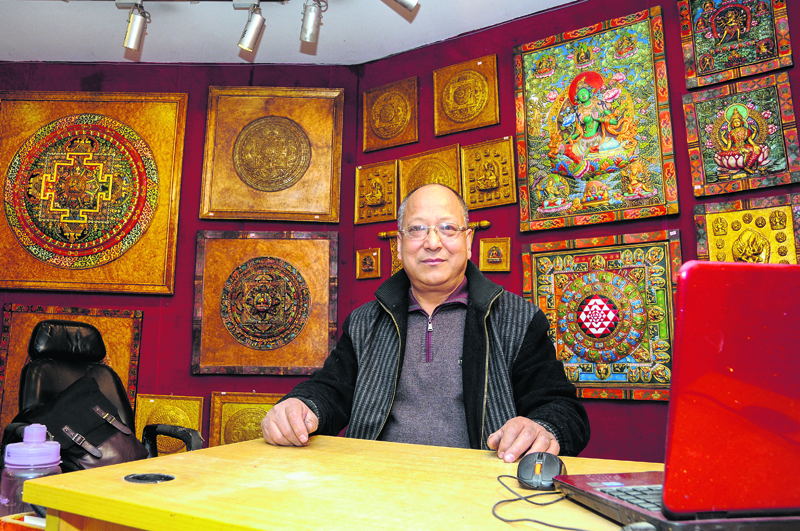We are either unaware of the rights associated with intellectual property, or just really don't give a toss about any of it. For his part, Khaniya had been found guilty of plagiarism which would be enough to sound the death knell for one's career in research and writing elsewhere. But we all know that here in Nepal, things work a little differently.
But I can't for the life of me understand why he should be singled out for special treatment. Now I'm not condoning plagiarism but it's rampant in our country and to make matters worse, it's pretty blatant too. Many so called 'writers' and 'authors' have bolstered their finances and academic credentials by leaning on their three most convenient mates: Ctrl, C and V.
There are myriad syllabus books, research papers, and theses that are basically collated material from different sources – with a judicious restructuring of words – that have been published by these authors or researchers as their own work. Is it any wonder then that there were very few people – to use a biblical analogy – willing to throw the first stone?
And while we busied ourselves preparing mock obituaries of Nepalis academia we failed to take a look around and consider the broader picture staring us in the face. Why should we stop at academics when we are faced with a pandemic of brazen intellectual property infringement all over our country?
A lot of research isn't really required because a walk around Kathmandu is more than enough to open your eyes to the wide ranging scope of this issue. It's rampant in the garments industry where we label the clothes with whatever brand happens to be in fashion or whatever brand conscious customers seek. In the restaurant business too, we have names that sound suspiciously like franchises of famous chains. And it's by no means restricted to foreign products, if the case of Goldstar shoes is anything to go by. Neither does the imitation have to be the same product, let alone the same quality, as in the case of 'Nokia' shoes or 'Rolex' sweets.
All this may be worth a few giggles at first sight, and I've had my fair share of laughs at the audacity of some of the imitations too. But what seems fairly innocuous to us is detrimental to our interests in the long run. What makes these products dangerous is the fact that a lot of countries have laws preventing knock offs from being registered, thus resulting in all these imitation goods going under the official radar.
This scenario then lends itself to dubious practices which run the gamut from health issues (chemicals in FMCG goods), economic issues (tax avoidance), ethical issues (use of child labour) and anti-social practises like funding organized crime. And in most cases, it's the goods themselves that can be harmful to us. Granted that you can wear 'Adibas' shoes or 'Don Players' trousers instead of the real deal, but what about fake or counterfeit goods that have the potential to inflict serious damage especially when it comes to health and beauty products, pharmaceuticals, liquor, or even drinking water.
My colleague rather helpfully points out that we don't actually manufacture anything – like it really is something we want to shout about. But we do trade in it partly out of compulsion due to our landlocked status and mainly because their goods are cheap and cheerful, and hence indispensable for a significant proportion of customers not economically well off to buy 'branded' goods.
Nepal is a part of WIPO (World Intellectual Property Organization) and we have laws, some pretty archaic that deal with intellectual property. But sadly enough, like with everything else, there is a lack of enforcement for these issues. The departments in the government apparatus are unclear of what they should be doing and our trade machinery is ill equipped to tackle IPR issues, assuming that they even want to in the first place. Even if a complaint is filed, of which I discovered there are dozens pending in the courts, our judicial process is very slow.
A good IPR policy and enforcement mechanism may not be the panacea to our economic ills but it has to be part of our economic development agenda, if we wish to prosper. Take for example, the huge inflow of money into global sports. This happens because the organizers are militant about protecting IPR and the commercial benefits that accrue as a result of that protection (as several businesses in London found out to their detriment during the Olympics in 2012).
Understandably, it may not be possible to give this issue immediate focus because the government has got a lot on their plate at the moment. But if we are serious about attracting FDI, facilitating technology transfer and promoting research in our quest for economic growth we have to take initiatives to protect IP rights. As the saying goes 'better late than never'.
gunjan.u@gmail.com
'Province govt policy and programmes an imitation of federal go...




































